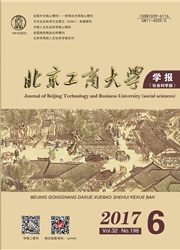

 中文摘要:
中文摘要:
决策双系统理论为系统审视促销决策提供了基础。从直觉启发式来看,消费者往往会借助自己认为更有把握的象征性信息或刻板印象进行促销决策,并且过度关注品牌和价格信息。从直觉偏误来看,消费者在收集和接收促销信息时容易夸大感知利得,忽略有可能存在的风险,并且倾向于寻找支持其想法的证据,而不关注或很少关注否定其观点的证据。从决策特征来看,消费者既会受到不同促销信息框架的影响,也会受到群体以及其他人的影响。从认知闭合需要与认知主观能动性来看,不同消费者的促销决策质量存在着明显的差异。从时间压力来看,随着机会时间的减少,会引起消费者不做后悔的强度的增长。未来可综合促销特征、个体认知特质及直觉启发式对促销决策进行更深入地探索。
 英文摘要:
英文摘要:
The theory of dual-systems has provided a good basis for probing into decision-making of sales promotion system- atically. From the perspective of intuitive heuristics, consumers often make the promotional decision based on symbolic informa- tion or stereotype with excessive concern over brand and price information. From the perspective of intuitive bias, on one hand, consumers are prone to exaggerate perceived profits and neglect potential risks when they are confronted with promotional informa- tion. On the other hand, consumers prefer to look for the evidences which can support their views, with no or less care to any evi- dences inconsistent with their viewpoints. From the perspective of characteristics of decision-making, consumers can be influ- enced not only by the framework of promotional information but also by the group or other people. From the perspective of need for cognitive closure and cognitive subjective initiative, the consumer decision-making of sales promotion can be obviously diver- gent in quality among different consumers. From the perspective of time pressure, consumers' intensity of "regret for not doing" is increasing with less and less opportunity time. In the future, a further probe into the decision-making of sales promotion should be made by integrating the attributes of promotion, individual cognitive traits and intuitive heuristics.
 同期刊论文项目
同期刊论文项目
 同项目期刊论文
同项目期刊论文
 期刊信息
期刊信息
